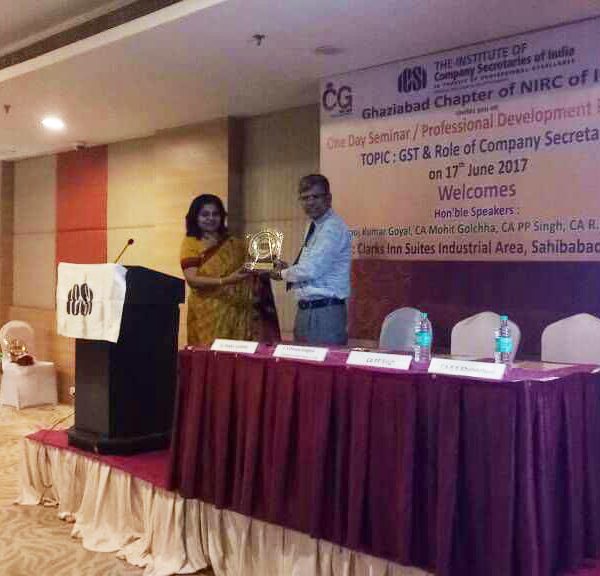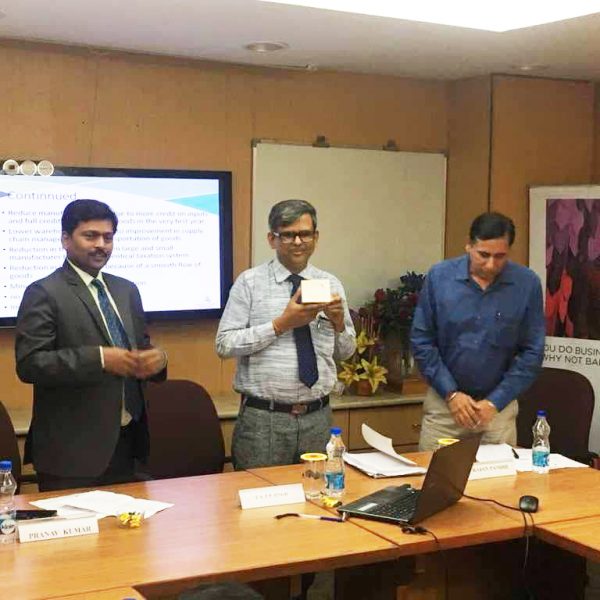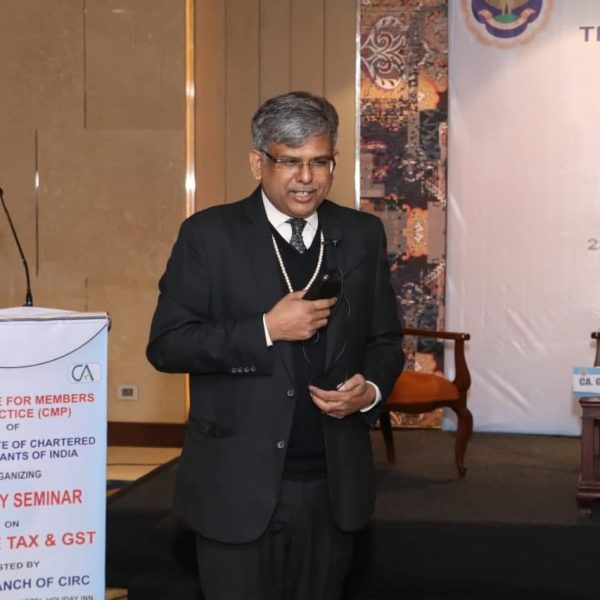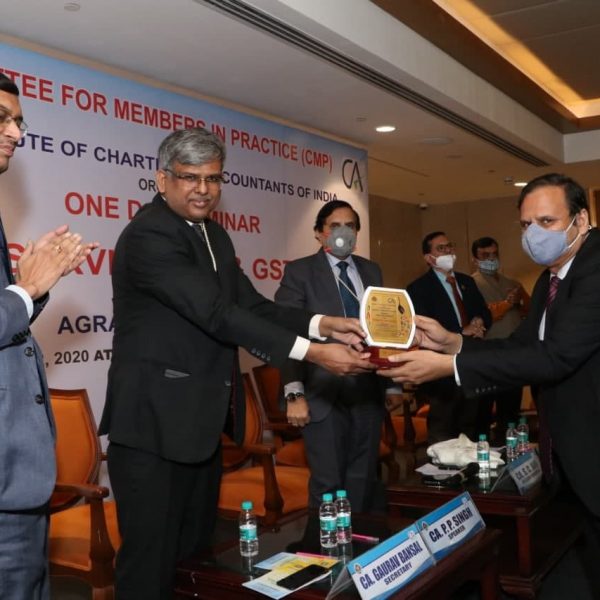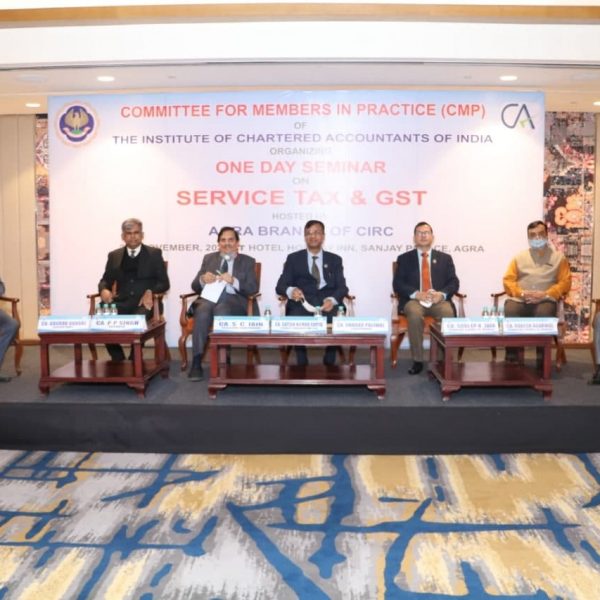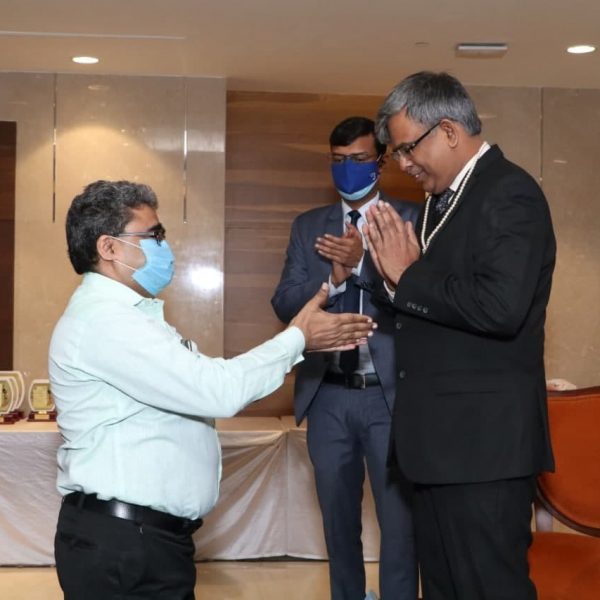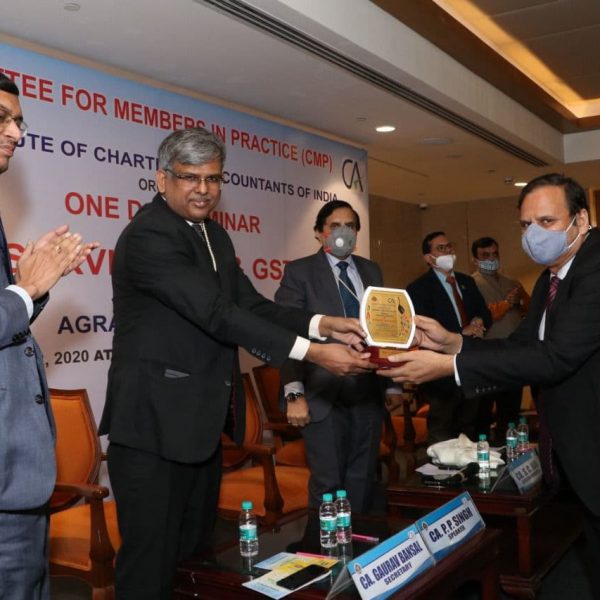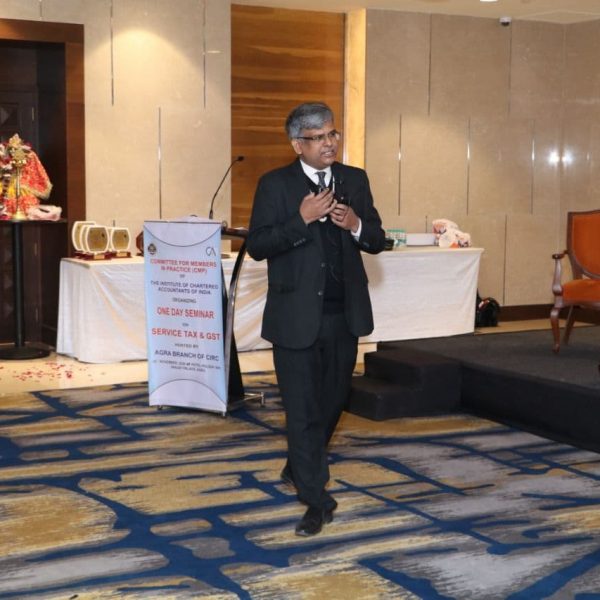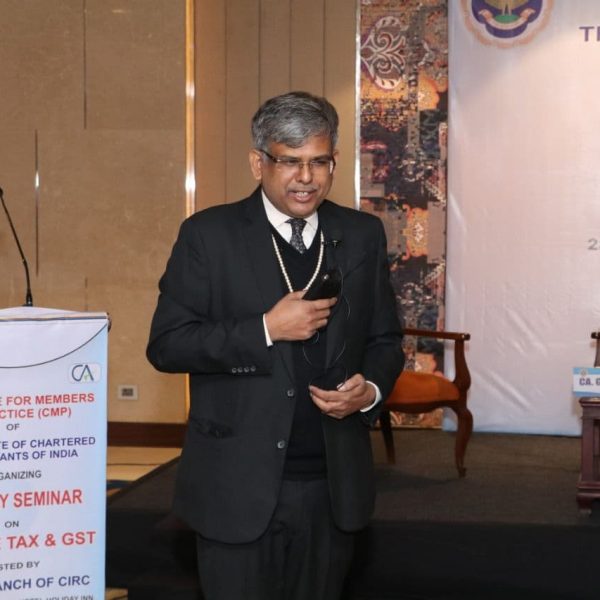Anti- Profiteering measures adopted under the GST Act
Introduction: Anti-profiteering measures have been incorporated under GST law to provide the benefit of a reduction in GST rates to the consumers in terms of reduced prices and not allow more profit margins to the businessmen. The suppliers of goods and services must pass on any reduction in the rate of tax or the benefit of input tax credit to consumers by way of commensurate reduction in prices. Section 171 of the CGST Act, 2017 and Rules 123 to 137 of the CGST Rules deal with the provision of anti-profiteering authority under GST law and the said authority is headed by National Anti-profiteering Authority.
Protection for Consumer’s interest: Any reduction in the rate of tax on any supply of goods or services or the benefit of input tax credit to consumers by way of commensurate reduction in prices of the said goods or services, if this is not done, the consumer’s interest is protected by the National Anti-profiteering Authority which may order:
(a) reduction in prices;
(b) return of the amount not passed on which interest @ 18% to the recipient;
(c) imposition of penalty; and
(d) cancellation of registration of the supplier.
Anti-profiteering measure [Section 171]
- Any reduction in rate of tax on any supply of goods or services or the benefit of input tax credit shall be passed on to the recipient by way of commensurate reduction in prices.
- The Central Government may, on recommendations of the Council, by notification, constitute an Authority, or empower an existing Authority constituted under any law for the time being in force, to examine whether input tax credits availed by any registered person or the reduction in the tax rate have actually resulted in a commensurate reduction in the price of the goods or services or both supplied by him. Anti Profiteering authority to examine and take action.
- The Authority referred to in sub-section (2) shall exercise such powers and discharge such functions as may be prescribed.
(3A) Where the Authority referred to in sub-section (2), after holding an examination as required under the said sub-section comes to the conclusion that any registered person has profiteered under sub-section (1), such person shall be liable to pay a penalty equivalent to 10% of the amount so profiteered:
Provided that no penalty shall be leviable if the profiteered amount is deposited within 30 days of the date of passing of the order by the Authority.
Anti-profiteering Profiteering authority only for 4 years Rule 122
Constitution of the Standing Committee and Screening Committees [Rule 123]
(1) The Council may constitute a Standing Committee on Anti-profiteering at the national level which shall consist of such officers of the State Government and Central Government as may be nominated by it.
(2) A State level Screening Committee shall be constituted in each State by the State Governments
Rule 127 The authority shall discharge the following functions, namely:–
(i) to determine whether any reduction in the rate of tax on any supply of goods or services or the benefit of input tax credit has been passed on to the recipient by way of commensurate reduction in prices;
(ii) to identify the registered person who has not passed on the benefit of reduction in the rate of tax on the supply of goods or services or the benefit of input tax credit to the recipient by way of commensurate reduction in prices;
(iii) to order,
(a) reduction in prices;
(b) return to the recipient, an amount equivalent to the amount not passed on by way of commensurate reduction in prices along with interest @18% from the date of collection of the higher amount till the date of the return of such amount or recovery of the amount not returned, as the case may be, in case the eligible person does not claim return of the amount or is not identifiable, and depositing the same in the Fund referred to in section 57;
(c) imposition of penalty as specified in the Act – 10 % of the amount profiteered; and
(d) cancellation of registration under the Act.
[(iv) to furnish a performance report to the Council by the tenth day of the close of each quarter.
Rule 128.Examination of application by the Standing Committee at the national level and Screening Committee at the state level
(1) The Standing Committee shall, within 2 months from the date of the receipt of a written application [or within such extended period not exceeding a further period of one month for reasons to be recorded in writing as may be allowed by the Authority, in such form and manner as may be specified by it, from an interested party or from a Commissioner or any other person, examine the accuracy and adequacy of the evidence provided in the application to determine whether there is prima facie evidence to support the claim of the applicant that the benefit of reduction in the rate of tax on any supply of goods or services or the benefit of the input tax credit has not been passed on to the recipient by way of commensurate reduction in prices.
(2) All applications from interested parties on issues of a local nature [or those forwarded by the Standing Committee shall first be examined by the State level Screening Committee and the Screening Committee shall, within two months from the date of receipt of a written application, or within such extended period not exceeding a further period of one month for reasons to be recorded in writing as may be allowed by the Authority, upon being satisfied that the supplier has contravened the provisions of section 171, forward the application with its recommendations to the Standing Committee for further action.
Rule 129.Initiation and conduct of the investigation by the Director General of Anti Profiteering.
(1) Where the Standing Committee is satisfied that there is prima-facie evidence to show that the supplier has not passed on the benefit of reduction in the rate of tax on the supply of goods or services or the benefit of input tax credit to the recipient by way of commensurate reduction in prices, it shall refer the matter to the Director General of Anti-profiteering for a detailed investigation.
(2) The Director General of Anti-profiteering shall conduct an investigation and collect the evidence necessary to determine whether the benefit of reduction in the rate of tax on any supply of goods or services or the benefit of the input tax credit has been passed on to the recipient by way of commensurate reduction in prices.
(3) The Director General of Anti-profiteering shall, before initiation of the investigation, issue a notice to the interested parties containing, inter alia, information on the following, namely:-
(a) the description of the goods or services in respect of which the proceedings have been initiated;
(b) summary of the statement of facts on which the allegations are based; and
(c) the time limit allowed to the interested parties and other persons who may have information related to the proceedings for furnishing their reply.
(4) The Director General of Anti-profiteering may also issue notices to such other persons as deemed fit for a fair enquiry into the matter.
(5) The Director General of Anti-profiteering shall make available the evidence presented to it by one interested party to the other interested parties, participating in the proceedings.
(6) The Director General of Anti-profiteering shall complete the investigation within a period of 6months of the receipt of the reference from the Standing Committee or within such extended period not exceeding a further period of three months for reasons to be recorded in writing as allowed by the Standing Committee and, upon completion of the investigation, furnish to the Authority, a report of its findings along with the relevant records.
leading case law:
In the matter of Director-General of Anti-profiteering v. Nestle India Ltd, reported-[2019] 112 taxmann.com 202 (NAA), it was held that Anti-profiteering provisions attracted for adopting incorrect methodology to pass on the benefit of rate reduction. The respondent is a subsidiary of the Nestle group and is engaged in the manufacturing and sale of various food products including coffee, noodles, chocolates, etc. GST rates on several products supplied by the respondent were reduced from 28% to 18% w.e.f. 15.11.2017 and from 18% to 12% w.e.f. 25.01.2018. Before any notice of investigation of profiteering was issued, the applicant suo moto deposited the profiteered amount of around Rs.16 crore in the Consumer Welfare Fund. National Anti-profiteering Authority ordered an investigation by the Director General of Anti-profiteering (DGAP) against the respondent. As per the DGAP’s report, the respondent has resorted to profiteering by increasing base prices of around 300 stockkeeping units (SKU) which were impacted by the rate reduction. The respondent passed on the benefit at the aggregate level of the SKU or at the product level whereas it was required to pass such benefit on every SKU so that the benefit could reach every buyer of that SKU. Hence, the methodology adopted by the respondent to pass on the benefit of rate reduction was incorrect. Therefore, the total profit made by the respondent was determined at around Rs.89 crores. The NAA directed the respondent to reduce the prices proportionately and to deposit the balance profit in the Consumer Welfare Fund.

